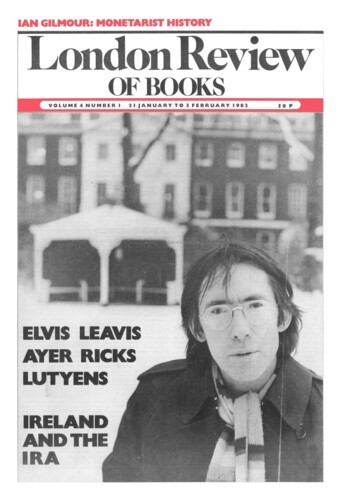‘Gwendolen Harleth’
F.R. Leavis, 21 January 1982
George Eliot called her last novel Daniel Deronda, so that to separate part of it off for publication under another title than her own might seem to be challenging the judgment, the deliberate and emphatic intention, of the author herself in the most questionable way. But there are two George Eliots, and they both – neither, it seems, embarrassed by consciousness of the duality – play dominating roles in the massive book: they dominate it together as if they were one. But the essential spirits in which they dominate are so much not one that the creatively vital of them by its mere presence as what it unmistakably is exposes the creative impotence of the other. That George Eliot should have been so unconscious of the incompatibility of the spirits she has in fact married together is one of the things that seem most to justify the usual dismissal of Daniel Deronda. It also makes the book in a special way a rewarding critical study, one that notably illuminates the nature of creativity. But my directing purpose here is not what such a statement suggests: it is to establish in the only way possible that there is a major classic, which may be suitably called Gwendolen Harleth, hidden from the general recognition it deserves in the voluminous mixed work that George Eliot published – a classic it is incumbent on us to reclaim for English literature.

